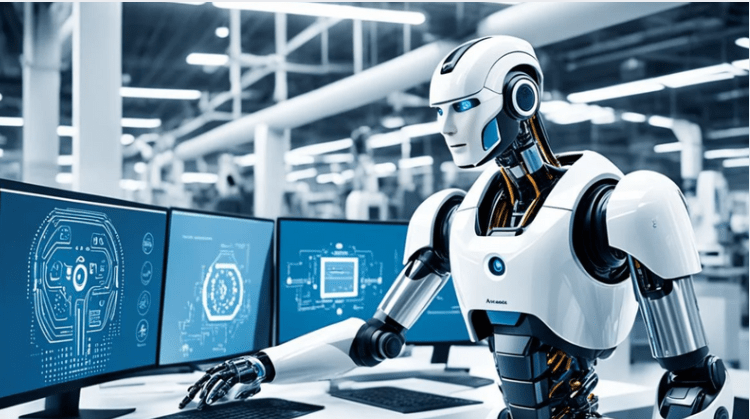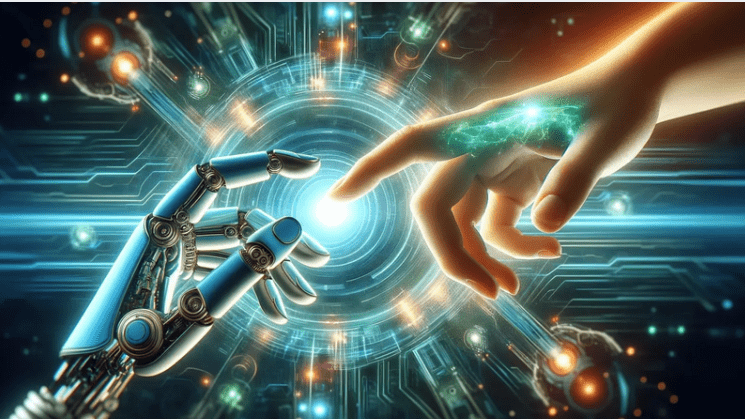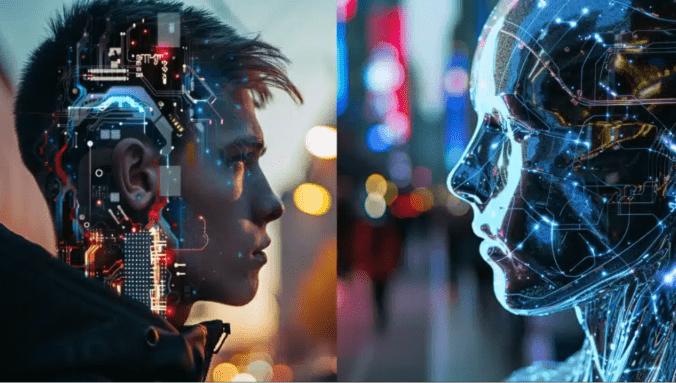Artificial Intelligence (AI) is reshaping industries globally, revolutionizing the way businesses operate, innovate, and compete. From predictive analytics to robotics, AI is creating a profound impact across various sectors.
Transforming Manufacturing with AI
AI in manufacturing brings unprecedented efficiency and innovation. It optimizes processes, enhances productivity, and reduces waste by integrating advanced technologies like machine learning, robotics, and predictive maintenance.
For example, predictive maintenance allows machines to self-diagnose and predict potential failures. AI-driven robotics streamline assembly lines, ensuring precision and saving time. Additionally, AI-powered quality control systems detect flaws, ensuring consistent product standards.
Revolutionizing Healthcare
Healthcare is being transformed by AI’s capabilities in diagnostics, personalized medicine, and patient care. With natural language processing, AI interprets vast amounts of medical data, aiding in accurate disease detection.
Robots equipped with AI assist in surgeries, enhancing precision while reducing risks. Virtual health assistants use conversational AI to interact with patients, offering real-time advice and reminders. Moreover, predictive algorithms help forecast health trends, empowering proactive medical interventions.
Enhancing Financial Services
AI in finance is optimizing operations and enhancing customer experience. Banks and financial institutions leverage AI algorithms for fraud detection, credit scoring, and risk management. Chatbots and virtual assistants provide seamless customer support, offering solutions instantly.
Algorithmic trading, another innovation, uses AI to predict market trends and execute high-speed transactions. Personalized financial planning tools also use AI to analyze user behavior, suggesting tailored investment strategies.
Reimagining Retail and E-commerce
Retailers are embracing AI to deliver personalized shopping experiences and streamline logistics. Recommendation systems powered by AI models analyze customer behavior to suggest products, increasing sales and engagement.
Inventory management becomes efficient with AI, as it predicts demand trends and reduces overstock or understock issues. Visual AI in e-commerce enhances search functionalities, enabling shoppers to find products via images rather than keywords.
Shaping the Future of Education
AI is personalizing learning and enhancing student engagement in education. Intelligent tutoring systems provide tailored lessons, adapting to the learner’s pace and preferences. Facial recognition and emotion detection tools assess student engagement, providing valuable insights to educators.
Furthermore, AI automates administrative tasks like grading and attendance tracking, allowing teachers to focus more on core teaching activities.
Boosting Efficiency in Transportation and Logistics
The transportation sector benefits from AI through advancements in autonomous vehicles, route optimization, and fleet management. Self-driving cars rely on AI-driven systems for navigation and safety, making travel safer and more efficient.
Logistics companies use AI to optimize delivery routes, ensuring faster shipments and reduced fuel consumption. AI also helps in managing supply chains by predicting delays and improving operational transparency.
Advancing Agriculture with AI
AI is revolutionizing agriculture by improving crop yields, resource management, and pest control. Computer vision technologies analyze plant health, detecting diseases early to ensure timely treatment.
Automated irrigation systems powered by AI monitor soil conditions, optimizing water usage. Drones integrated with AI offer aerial insights into crop conditions, allowing farmers to make informed decisions.
Revolutionizing Entertainment and Media
The entertainment industry leverages AI for content creation, personalization, and distribution. Platforms like streaming services use AI to recommend shows and movies based on user preferences, enhancing viewer experience.
AI also aids in generating scripts, editing videos, and creating visual effects, making production processes more efficient. Furthermore, content moderation tools ensure compliance with guidelines, protecting brand reputation.
Accelerating Research and Development
AI accelerates R&D across industries by analyzing massive datasets and identifying patterns. It is instrumental in drug discovery, where machine learning models predict molecular interactions.
In engineering, AI simulates designs, reducing prototyping costs and time. By automating repetitive tasks, AI allows researchers to focus on innovation, driving advancements in science and technology.
Supporting Climate Action and Sustainability
AI contributes significantly to sustainability efforts. It optimizes energy consumption, predicts environmental changes, and supports renewable energy systems. Smart grids powered by AI manage energy distribution efficiently, reducing waste.
AI also monitors deforestation and wildlife populations using satellite imagery, aiding in conservation efforts. In agriculture, AI-driven practices promote eco-friendly farming techniques.
Facilitating Smart Cities
AI is a cornerstone of smart cities, enhancing urban living through intelligent infrastructure and resource management. Traffic management systems use AI to reduce congestion and improve road safety.
Smart waste management solutions optimize collection schedules, reducing pollution. Additionally, AI-powered surveillance ensures public safety, while smart home devices enhance energy efficiency and convenience.
FAQs
1. How does AI help businesses improve efficiency?
AI automates routine tasks, predicts trends, and optimizes operations, enabling businesses to save time and resources.
2. What industries benefit the most from AI?
Industries like healthcare, finance, manufacturing, and transportation experience significant benefits due to AI’s transformative capabilities.
3. Are there risks associated with AI implementation?
Yes, challenges include data privacy concerns, potential job displacement, and biases in AI models.
4. How is AI contributing to sustainability?
AI promotes efficient energy use, supports renewable energy systems, and aids in environmental conservation efforts.
5. Can AI completely replace human roles in industries?
While AI enhances efficiency, it cannot replace human creativity, empathy, and decision-making entirely.
6. How is AI shaping education?
AI personalizes learning experiences, automates administrative tasks, and provides insights into student engagement and performance.



